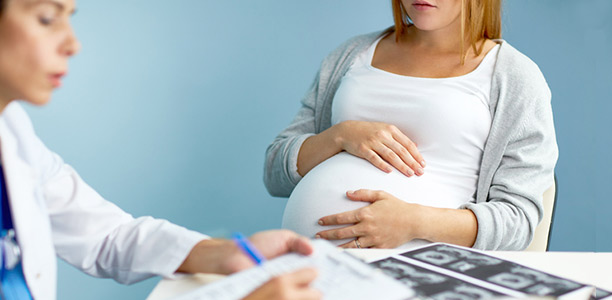Two vaccinations are recommended in Australia during pregnancy: whooping cough (pertussis) and influenza.
Whooping cough
Whooping cough, caused by a type of bacteria called Bordetella pertussis, can be a very serious disease for babies that can even cause death. The best way to protect newborn babies from whooping cough is to vaccinate pregnant women. When this occurs, antibodies are passed from the mother to the developing baby, resulting in short-term immune protection after birth.
In Australia, it is recommended that the combination diphtheria, tetanus and pertussis vaccine (dTpa) be given during the third trimester of pregnancy (ideally between 28 and 32 weeks), as this can best prevent whooping cough in babies. This vaccine should be given during each pregnancy, regardless of whether you have received it before.
Evidence from clinical and observational studies shows that the dTpa vaccine is safe when given during pregnancy.
Influenza
When you are pregnant, the flu can be a very serious disease. Natural changes in your immune system mean that the risk of serious complications from influenza is up to five times higher than normal. Even healthy women with a healthy pregnancy can develop life-threatening complications as a result of the flu. Babies are also at a high risk of serious complications if they catch the virus, and are up to 10 times more likely to be hospitalised with the flu than older children. Vaccinating against influenza protects both mother and baby, as antibodies are passed on to the developing baby and can provide protection for the first six months after birth.
The influenza vaccine is recommended at any stage of pregnancy, particularly for women who will be in the second or third trimesters during winter and early spring (the influenza season).
Evidence from clinical and observational studies shows that the influenza vaccine is safe when given during pregnancy.
Unplanned pregnancy and other considerations
In the case of an unplanned pregnancy, talk with your doctor about which vaccinations may be given under special circumstances. While not always recommended, some vaccines such as hepatitis B and pneumococcal can be given on a case-by-case basis to ‘at-risk’ pregnant mothers. This will involve a discussion about the benefits and risks of administering these vaccines.
Generally speaking, live attenuated vaccines such as measles, mumps and rubella (MMR) will not be recommended due to the possibility that the weakened vaccine virus may be passed on to the developing baby. It is important to note that this is completely theoretical, as there has been no real-life evidence to suggest that the virus does pass on to the baby.
Other special considerations include:
- If you are planning international travel, talk with your doctor at least 4 to 6 weeks before leaving to discuss the exceptional need for certain vaccines;
- If you have chronic liver disease, you may be recommended the hepatitis A vaccine.
Vaccinations for close household contacts and carers
Information about vaccinations for family members and other close contacts to help protect both baby and mother can be found here.
More information
 |
For more information about vaccinations in pregnancy and in children in Australia, see Vaccinations. |
References
- Immunisation for pregnancy [online]. Australian Government Department of Health; 2018 [cited 5 June 2018]. Available from: [URL link]
- The Australian Immunisation Handbook 10th Edition. Recommendations for vaccination in pregnancy [online]. Australian Government Department of Health; 2017 [cited 5 June 2018]. Available from: [URL link]
- Immunisation and pregnancy [online]. Healthdirect Australia; 2017 [cited 5 June 2018]. Available from: [URL link]
- Vaccinate against flu – protect your baby too brochure [online]. Australia Government Department of Health; 2018 [cited 5 June 2018]. Available from: [URL link]
- Wiley K, Regan A, McIntyre P. Immunisation and pregnancy – who, what, when and why? Aust Prescr. 2017;40(4):122-4. [Full text]
- Factsheet: Vaccinations during pregnancy protect expectant mothers and their babies [online]. National Centre for Immunisation Research & Surveillance; 2015 [cited 5 June 2018]. Available from: [PDF]
- Maternal vaccines: Part of a health pregnancy [online]. Centers for Disease Control and Prevention; 2016 [cited 5 June 2018]. Available from: [URL link]











